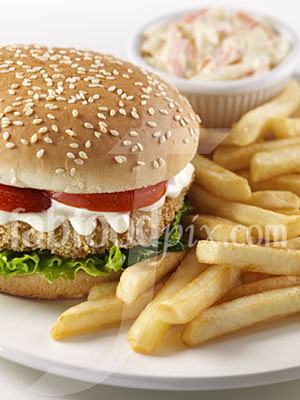Small- to medium-size investors have been hit hard over the past two years, yet they remain the mainstay of the property sector.
These folk – and most of them are small investors – consist not only of business people who open their doors in the wee hours to serve coffee to those in early-riser industries and stay up late to cater for the increasingly moveable working hours of office staff and late-night shift workers.
They also have to function in a sector that has to cope with many new tax imposts, huge amounts of paperwork and deal with the demands of the public daily .
Despite all this, they continue to display a strong appetite for buying shops, particularly the high-exposure properties favoured by well-known fast-food tenants.
Buying such sites is providing investors with good returns, thanks to our lifestyle demands for quick and easy food at reasonable prices.
While many people have their superannuation funds in the hands of listed trusts, owning a plot of land other than the family home – to help counteract the hardships that go with running a small- or medium-sized business – is an attractive option.
One of the most popular sectors for real estate investment is retail – whether it is a family-run coffee shop or a larger restaurant.
Buying a franchise is another form of investment that has grown in popularity in the past two years.
More than half the new owners of such property investments are people who have lost their jobs or opted for a new direction.
The investment gives property owners stability as they have a set, usually long-term tenant.
Buying a franchise also allows flexibility since the owner can open the business in many parts of the country if they decide to leave the city for a lifestyle change.
Researchers at the real estate firm Savills say $421 million worth of retail shops changed hands nationally in the year to March in 97 deals.
While this is down slightly on the $455 million in sales in the year to March last year, it shows small retail shops have continued to generate strong activity over the past two years.
Among the most popular retail shop investments are those tenanted by prominent national and international food retailers such as Hungry Jack’s, Red Rooster, Krispy Kreme, Starbucks and 7-Eleven. In recent months Savills has sold 12 Hungry Jack’s properties in South Australia for a total of more than $23 million.
The divisional director of Savills South Australia, Steve Bobridge, said 12 properties were bought by private investors, with yields ranging from 5.67 per cent to 8.17 per cent.
“Hungry Jack’s occupies prime sites with long-term leases, which provides all the necessary ingredients that private buyers are seeking for secure investment.”
In NSW a number of Hungry Jack’s sales have been recorded, including an outlet at Tweed Heads that was sold on a yield of 5.84 per cent. A Red Rooster outlet at Jamisontown, west of Sydney, was sold on a yield of 6.73 per cent.
The divisional director for sales and leasing with Savills NSW, Robert Lowe, said there was strong buyer demand for fast-food properties underpinned by long-term leases. “Security of tenure is what investors are looking for and the longer the lease terms the better.”
Savills Victoria has recently had strong buyer interest across all prominent food-tenanted properties, with sales including a Krispy Kreme outlet for $2.10 million at 5.14 per cent yield and a Starbucks for $2.90 million at 4.27 per cent yield.

Small- to medium-size investors have been hit hard over the past two years, yet they remain the mainstay of the property sector.
These folk – and most of them are small investors – consist not only of business people who open their doors in the wee hours to serve coffee to those in early-riser industries and stay up late to cater for the increasingly moveable working hours of office staff and late-night shift workers.They also have to function in a sector that has to cope with many new tax imposts, huge amounts of paperwork and deal with the demands of the public daily .
Despite all this, they continue to display a strong appetite for buying shops, particularly the high-exposure properties favoured by well-known fast-food tenants.Buying such sites is providing investors with good returns, thanks to our lifestyle demands for quick and easy food at reasonable prices.
While many people have their superannuation funds in the hands of listed trusts, owning a plot of land other than the family home – to help counteract the hardships that go with running a small- or medium-sized business – is an attractive option.
One of the most popular sectors for real estate investment is retail – whether it is a family-run coffee shop or a larger restaurant.Buying a franchise is another form of investment that has grown in popularity in the past two years.
More than half the new owners of such property investments are people who have lost their jobs or opted for a new direction.The investment gives property owners stability as they have a set, usually long-term tenant.Buying a franchise also allows flexibility since the owner can open the business in many parts of the country if they decide to leave the city for a lifestyle change.
Researchers at the real estate firm Savills say $421 million worth of retail shops changed hands nationally in the year to March in 97 deals.While this is down slightly on the $455 million in sales in the year to March last year, it shows small retail shops have continued to generate strong activity over the past two years.
Among the most popular retail shop investments are those tenanted by prominent national and international food retailers such as Hungry Jack’s, Red Rooster, Krispy Kreme, Starbucks and 7-Eleven. In recent months Savills has sold 12 Hungry Jack’s properties in South Australia for a total of more than $23 million.The divisional director of Savills South Australia, Steve Bobridge, said 12 properties were bought by private investors, with yields ranging from 5.67 per cent to 8.17 per cent.”Hungry Jack’s occupies prime sites with long-term leases, which provides all the necessary ingredients that private buyers are seeking for secure investment.”
In NSW a number of Hungry Jack’s sales have been recorded, including an outlet at Tweed Heads that was sold on a yield of 5.84 per cent. A Red Rooster outlet at Jamisontown, west of Sydney, was sold on a yield of 6.73 per cent.
The divisional director for sales and leasing with Savills NSW, Robert Lowe, said there was strong buyer demand for fast-food properties underpinned by long-term leases. “Security of tenure is what investors are looking for and the longer the lease terms the better.”
Savills Victoria has recently had strong buyer interest across all prominent food-tenanted properties, with sales including a Krispy Kreme outlet for $2.10 million at 5.14 per cent yield and a Starbucks for $2.90 million at 4.27 per cent yield.
(Source: By CAROLYN CUMMINS, June 21, 2010)
 Small- to medium-size investors have been hit hard over the past two years, yet they remain the mainstay of the property sector.
Small- to medium-size investors have been hit hard over the past two years, yet they remain the mainstay of the property sector.








